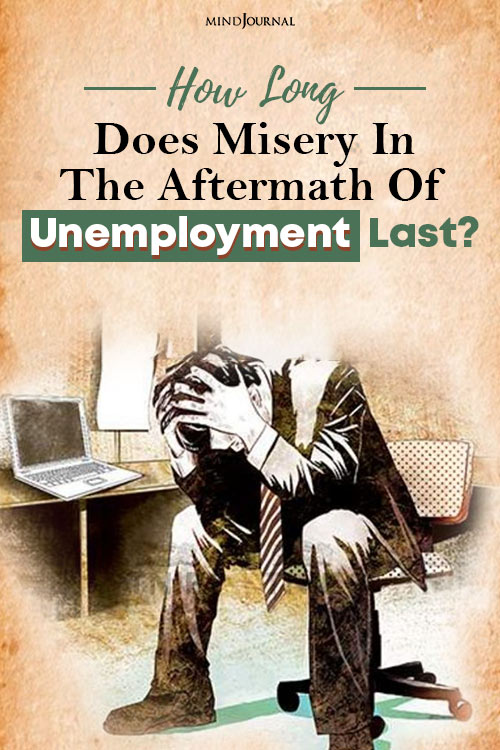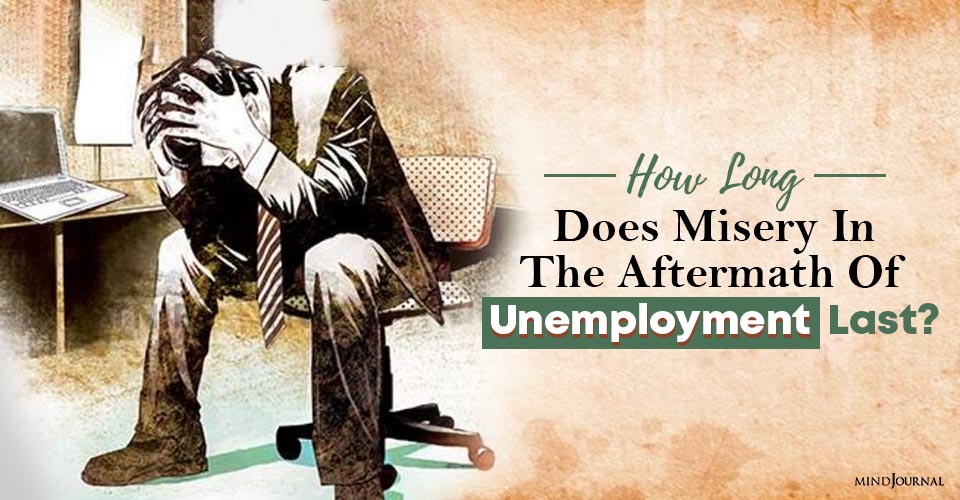Loss of a job impacts our psychological health. A lot of people find it difficult to recover from the adversity of unemployment. Neglected research argues for nuanced thinking and policy solutions.
This post is co-authored by my long-term collaborator Dr. Patrick E. McKnight, Professor of Psychology at George Mason University.
In the news today (March 26, 2020), the headlines read: “Jobless claims this morning will be historic” (Yahoo Finance), “Preparing for millions of layoffs” (New York Times), “U.S. jobless claims jump to 3.28 million, quadruple prior record” (Bloomberg), and “Wall Street shakes off unemployment report as aid nears” (New York Times).
These numbers are astounding and yet, many believe the effects of joblessness in the United States are trivial—due, in part, to the fact that managing the coronavirus pandemic takes temporal precedence for most individuals. In isolation, shutting down the economy seems an unfathomable concept except when pitched as part of a quarantine solution to halt the spread of the pandemic.
The government recognizes these concerns in its effort to provide a two trillion-dollar financial aid package. The aid offers a short-term salve that masks the immediate and potential long-term consequences of unemployment. Joblessness—especially when experienced later in one’s adult working life—can have adverse psychological effects (especially for men) that last for years.
The vast majority of unemployed adults do not psychologically recover from the adversity experienced. Not one year later, nor two, nor even three or four years later.
Related: Workplace Bullying Is A Play: Meet The 6 Characters
Psychological Instability And Unemployment
Psychological instability in the aftermath of being unemployed does not discriminate by gender, race, sexual orientation, political ideology, income, or social status. There is near consensus in the field of psychology: following unemployment, people experience lasting declines in well-being and unhealthy personality changes.
For example, with each year spent unemployed, women show larger reductions in compassion and politeness, men become increasingly lower in industriousness, and emotional disturbances such as anxiety disorders and depression become increasingly common.
To put the lingering effect of unemployment in perspective, the loss of a job has a more lasting impact than a divorce, the death of a spouse, and the vast majority of extremely stressful life events. As the gravest outcome, the World Health Organization found that between the years 2000 and 2011, the relative risk of suicides increased as high as 20-30% in the months preceding, during, and following the last economic crisis in 2008.
So while people are dying from the coronavirus, let’s not be mistaken: existing historical data suggest that unfortunately, a sizable number of people may also die from unemployment, at their own hands. Regarding the current news headlines, the unemployment numbers are likely to go up and the impact will be felt for generations to come. We base this rather grim outlook on available social science research—not on unknown characteristics of COVID-19 or our hunches.
Related: When It’s Time To Leave Your Toxic Workplace: 5 Red Flags
On March 24, 2020, in reference to the government’s recommendations for social distancing, President Donald Trump stated:
I guess by Monday or Tuesday, it’s about two weeks. We will assess at that time and give it more time if we need a little more time. We have to open this country up.
And the world flipped out. The notion that America can simultaneously address the physical and economic consequences of the pandemic felt unconscionable, harrowing, and morally indefensible. A close look at the social sciences shows that in truth, the physical and economic consequences are inextricably tied.
Opening up the country to recharge the economy not only has the obvious and expected financial benefits but also the less-than-obvious health benefits of making us all better off. Weighing the costs and benefits for an entire country’s population can be a difficult decision and we collectively require all of the available data to make informed decisions.
If you have never experienced poverty, it might be worthwhile to detail what it means to be impoverished in America. In a nationally representative study of over 60,000 adults requiring food assistance, 40% said they cut back on food, delayed or stopped paying utility bills, and avoided medical treatments as a sacrifice to keep their household.
In case you think low-income families are free riders relishing the good life at the government’s expense, consider these sobering statistics: 69% skipped washing dishes or doing laundry, 48% delayed changing a baby’s diaper, and 32% reused diapers. When an increasingly large number of the populace is unable to afford hygienic products, it becomes that much easier for a virus to spread. A staggering number of Americans are currently unemployed, and the numbers will grow in the weeks ahead.
In the past three years, the political parties in America split on whether every move taken by President Trump is intelligent and useful, or asinine and harmful. The president’s approval ratings rise and fall by month, ranging between 35% and 49%. Many objects to almost everything he says or does. Just like prior presidents, he makes poor decisions—and good decisions.
In our view, the decision to press the economy forward may be his best yet but the quality of that decision may take years to appreciate. We suggest readers consider both the short- and long-term consequences of a strategic resurgence of businesses and jobs. Instead of a blanket closure of everything, specific decisions to keep carefully sequestered healthy workplaces and workforces in action may prove most useful.
It will require a commitment to unusual guidelines, such as being geographically limited in activity (perhaps short-term lodging in businesses for those who are able). Don’t let the media or social pressure push you into premature closure on a single answer without consideration of the multiple, interwoven factors at play. Magical silver bullets are rare and unlikely. The uncertainty that exists for the coronavirus can be buffeted by a large body of psychological data on the colossal economic, social, and health impact of unemployment.
Related: When It’s Time To Leave Your Toxic Workplace: 5 Red Flags
We don’t have the answers. We are skeptical when people show absolute confidence in singular answers during uncertain situations. We do hope the policymakers experimenting with solutions are collecting data, upgrading their thinking based on new data, and being unafraid to change directions as warranted.
Todd B. Kashdan and Patrick E. McKnight are professors of psychology and co-lead The Well-Being Laboratory at George Mason University. Kashdan is the author of several books including Curious? and The Upside of Your Dark Side.
References Boyce, C. J., Wood, A. M., Daly, M., & Sedikides, C. (2015). Personality change following unemployment. Journal of Applied Psychology, 100(4), 991-1011. Diener, E., Lucas, R. E., & Scollon, C. N. (2006). Beyond the hedonic treadmill: revising the adaptation theory of well-being. American Psychologist, 61(4), 305-14. Lucas, R. E., Clark, A. E., Georgellis, Y., & Diener, E. (2004). Unemployment alters the set point for life satisfaction. Psychological Science, 15(1), 8-13. Nordt, C., Warnke, I., Seifritz, E., & Kawohl, W. (2015). Modelling suicide and unemployment: a longitudinal analysis covering 63 countries, 2000–11. The Lancet Psychiatry, 2(3), 239-245.
Written by: Todd B. Kashdan
Originally appeared on: Psychology Today
Republished with permission









Leave a Reply
You must be logged in to post a comment.